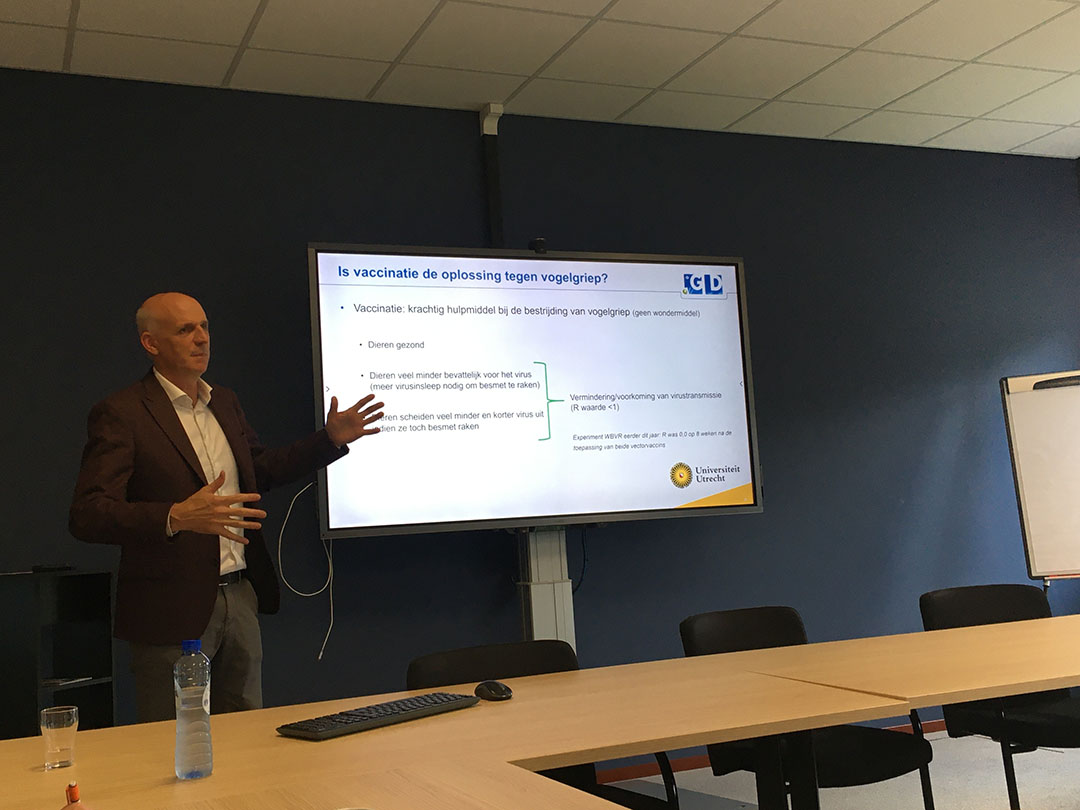The Dutch government, together with Wageningen University & Research, Utrecht University and Royal GD, have started their first real-world avian influenza vaccination trial.
Some 1,800 day-old layer chicks received a vaccination against highly pathogenic avian influenza in mid-September and will be monitored for the coming 18 months to establish protection and transmission of the virus. The field trial is being conducted at 2 commercial farms, while the virus tests will be done in the high containment lab at Wageningen Bioveterinary Research.
Previous research in the laboratory at Wageningen Bioveterinary Research identified 2 vector vaccines as being effective against the spread of highly pathogenic avian influenza in controlled conditions. These 2 vaccines, produced by Ceva Santé Animale and Boehringer Ingelheim, are now being tested under commercial conditions. This means that the birds undergo the same vaccination and management regime as regular birds on the same farm. As this is a scientific study, the birds will be closely monitored, swabbed and tested in line with European standards. The test groups will be in separate compartments and their products will not be marketed.
Large-scale vaccination

The trial will stretch until the third quarter of 2025, while the first results are expected to be published in the second quarter of 2024. The government wishes to make vaccination available at a larger scale as soon as possible in a responsible manner. That is why a step-by-step approach has been chosen. In addition to the field trial, a pilot on a larger number of poultry farms is expected to take place in the second quarter of 2024. The condition is that the vaccines get approved by European authorities and that the results of the first tests are known.
This is an important step towards the large-scale vaccination of poultry against the bird flu virus. Piet Adema, the Dutch minister agriculture, nature and food quality, said: “Bird flu is a serious disease that has a huge impact on the poultry sector and affects both the animals and the farmers. We are taking action now to reduce the number of infections in the future.”
Professor Sjaak de Wit has high hopes when it comes to the efficacy of the 2 vaccines in the test: “Under lab conditions we saw good protection and no shedding with infected birds.”